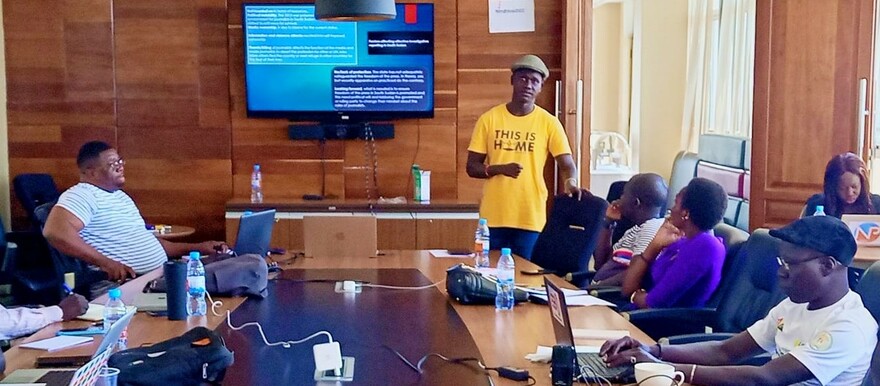Last week, the Union of Journalists of South Sudan (UJOSS) concluded the training of its second cohort of 25 journalists in investigative journalism.
As South Sudan prepares for general elections in 2024, UJOSS has taken the initiative to equip journalists with various skills to enhance their reporting capabilities.
The two-day training on investigative journalism was launched in Juba, with support from the Nonviolent Peaceforce (NP), and concluded on Friday.
During his address at the workshop, UJOSS President Oyet Patrick Charles urged journalists to adopt new techniques for investigating issues within the country. He emphasized the evolving nature of journalism and the abundance of information available to journalists today.
“The future of journalism is investigation, for a good journalist you must have this basic knowledge of investigative reporting,” Oyet Patrick Charles asserted. He continued, “Now the world is changing; previously, our challenge was that people would refuse to give us information. Today, people give you too much information until you do not know which information is correct and which is not. It requires the skills for you to be able to investigate and discern those issues.”
He further stated, “The journalists have capacity, so we are building something that is there, but we aim to make it better. We cannot build what is not there. It is not that the journalists lack capacity, but we are enhancing what already exists.”
Oyet also indicated that similar training would be extended to journalists in the states, fostering a more widespread culture of investigative reporting.
Adeng Malual Leek, Program Manager for Nonviolent Peaceforce, stressed the importance of investigative reporting for journalists in South Sudan, highlighting its role in establishing the credibility of news and information shared with the public.
“We know our future in South Sudan lies in your hands, journalists. Sometimes, if you want to say that war is happening near my house, I can believe you or choose not to believe you. So investigative journalism is very important because it actually shows the credibility of the news and the information that you share with the people outside,” she emphasized.
The workshop featured expert facilitators, including Dhieu William, a journalism lecturer at the School of Journalism and Communication Studies at the University of Juba; Nichola Mandil, a veteran journalist and journalism lecturer at Stafford International University in Juba; and Leila Osman, an experienced female journalist from the South Sudan Broadcasting Corporation (SSBC).
These facilitators shared their valuable experiences as journalists during South Sudan’s transition from being a semi-autonomous region in Sudan to becoming an independent state in 2011.




